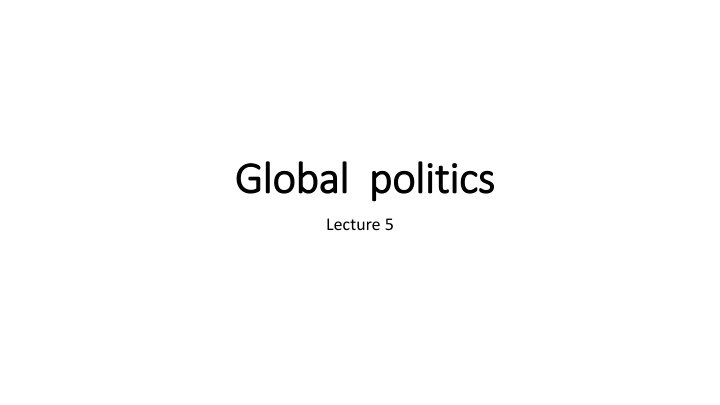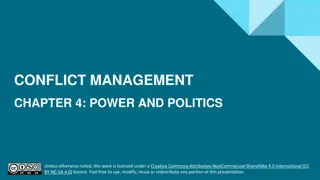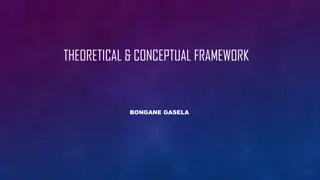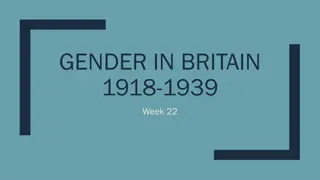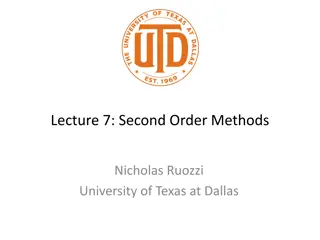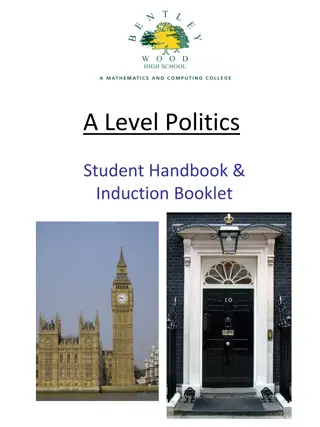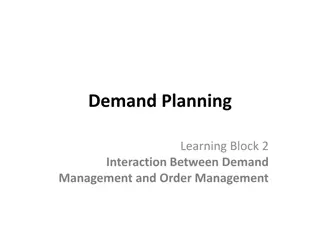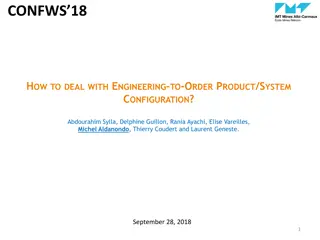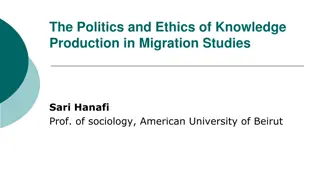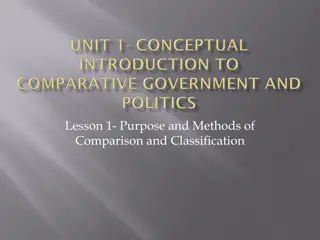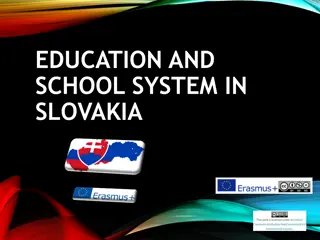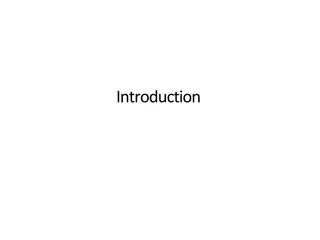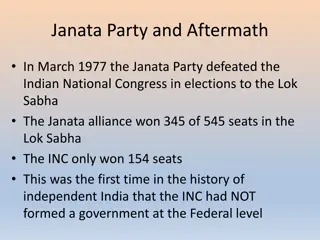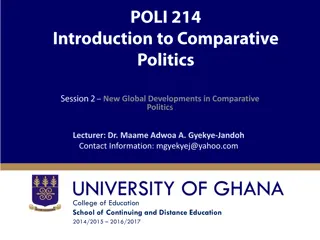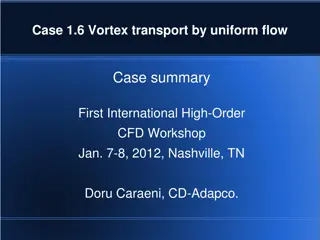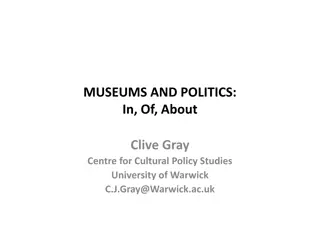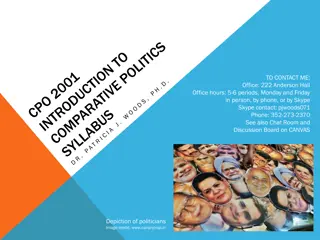Global Politics and Theoretical Schools – Understanding World Order and Perspectives
The content explores various topics in global politics, including analyzing international relations, the impact of the Cold War and globalization, theoretical perspectives like Idealism and Realism, and the concept of power politics. It delves into questions about world government, supranational bodies, and the main issues in contemporary global politics.
Download Presentation

Please find below an Image/Link to download the presentation.
The content on the website is provided AS IS for your information and personal use only. It may not be sold, licensed, or shared on other websites without obtaining consent from the author.If you encounter any issues during the download, it is possible that the publisher has removed the file from their server.
You are allowed to download the files provided on this website for personal or commercial use, subject to the condition that they are used lawfully. All files are the property of their respective owners.
The content on the website is provided AS IS for your information and personal use only. It may not be sold, licensed, or shared on other websites without obtaining consent from the author.
E N D
Presentation Transcript
Global Global politics politics Lecture 5
Global and Global and subnational subnational politics politics The main issues analyzed in the lecture How has international and world politics been analyzed and explained? How has world order been affected by the end of the Cold War and the beginning of the war on terror ? What is globalisation and its implications for the nation-state? Is globalization a positive or harmful phenomenon? Have supranational regional bodies any future? Could a world government be established?
Theoretical Theoretical schools schools of of international international politics politics Modern international system created XVI-XVII (sovereign states) to XX c. (Europe, USA, Japan, USSR) Ist World War; II World War; the Cold War Main theoretical perspectives for understanding world politics Idealism Realism Pluralism Marxism
Idealism Idealism Idealism adopts a perspective of viewing international relations based upon moral principles and legal norms. Sugests how international politics should look like rather than it really is Precursors: Thomas Aquinas ( a just war ); Immanuel Kant ( pre-world government ; morality and reason for universal, lasting peace) Internationalism human affairs on the international level based on universal principles, harmony and cooperation Liberal vision of internationalism trade and cooperation the League of Nations, the United Nations Neo-idealism the1970-1980-ies doctrine of human rights, the peace movement rejecting any violence; a concept of a world society excluding the notion of sovereign nation-states preferring cooperation and other noncoercive means of solving conflicts
Realism Realism Realist perspective - stresses the importance of power politics. Power politics an approach to politics - assumption pursuit of power the primary human goal Precursors: Thucydides Greece ( The Peloponnesian War ) 431 BCE; Sun Tzu ( The Art Of War ) V c. BCE; N. Machiavelli; T. Hobbes. Pursuit of national goals; state the main actor on the world stage; the nation as the main body requiring absolute loyalty Rejects a naive faith in international law and cooperation Instead, they prefer a balance of power between states lasting peace ( Si vis pacem para bellum ) Hierarchy of states superpowers dictate conditions Neo-realism power as central notion Criticised for divorcing politics from morality and thus intensifying arms race
Pluralism Pluralism Pluralist theory of international politics points to a mixed-actor model and growing diffusion of power. Based on liberal values and ideas diffusion of power among a number of competing bodies; undermining the position of the state Transnational actors increasingly influential on the world stage: MNCs (multinational corporations), NGOs (nongovernmental organizations) International politics shaped by a much borader range of interests Greenpeace, Coca-Cola, the Papacy and so on actors equal to states It prefers cooperation and integration as unavoidable in today s world
Marxism Marxism Differs from other theories - stresses the primacy of economic power and the role of international capital Marx referred only to national capitalism but emphasized cross-national divisions into classes (the possesing and exploited) This theory offers a horizontal organization of power (international class) unlike realistic and pluralist offering vertical organization of power (states) Lenin s imperialism - the last stage of capitalism conflicting interests of capitalist states brought about a dangerous military conflict (WWI) Neo-Marxism analyzes the global capital transnational corporations world s division into core and peripherial areas
XXI XXI- -century century world world order order From bipolarity to unipolarity Cold War and its consequences Bipolar system superpowers and balance of power (Mutually Assured Destruction MAD) Unipolarity USA the world hegemon hyperpower The War on terror Samuel Huntington s conception of a clash of civilizations Robert Cooper world now divided into three parts premodern, modern and postmodern countries Criticism regarding the war on terror overestimation of military power by the USA; imposing democracy from above naive; lack of solution to the Palestinian question. USA a rogue superpower without any constraints
Rise of Rise of multipolarity multipolarity and and its its containment containment Imperial problems of the USA imperial over-reach The rise of new powers (China, India, Russia) and transnational actors Changing nature of power and power relations Hard power and soft power military threats (stick) and effective peruasion (carrot) examples? Disadvantages of multipolarity chaos, anarchy, violence, exploitation of the weak (e. g. the outbreak of WWII) lack of power balances Multilateralism a way of creating a world order by introducing common and agreed rules of international relations
Globalization Globalization and and its its dynamics dynamics Numerous meanings of globalization a process, a policy, a marketing strategy, predicament, an ideology/ a complex of processes overlaping and overlocking, contradictory and opposing. Definition globalization - a borderless world (Kenichi Ohmae 1979) with permeable national borders, smaller divisions between people, greater interconnectedness and interdependecies in an economic, social, cultural and migratory dimension (its transworld and transborder character) Homogenization a stereotypical view of globalization Its real shape is often different indigenization induced diversity
Forms Forms of of globalization globalization Economic globalization there is no separate national (autarkic) economy all economies interlocked in a global economy internationalized production and flowing financial capital Nation-states have a reduced capacity to manage their economies these days Cultural globalization a proces of exchange of artefacts of various national and regional cultures flattening out cultural differences ( McDonaldization ) Information revolution satellite communication, tellecomunications networks, information technology and the internet Political globalization growing importance of international organizations and institutions: e. g. the UN, NATO, the EU, IMF, the World Bank, OECD, WTO Nation-states benefit that proces but are becoming increasingly dependant on supranational bodies.
Regionalization Regionalization Regionalization economic and political cooperation between states in the same region Helps globalization and resists it Flourished after WWII NATO, the Warsaw Pact, SEATO, NAFTA, the EU, APEC, ASEAN, Mercosur, FTAA After 1989 NATO the only regional defence organization International regionalization based upon economy Regional economic cooperation may serve the deepening of globalization and a greater resistance to it (WTO and IMF)
The The European European Union Union The European idea strongly rooted in history (the Middle Ages Europe, J. J. Rousseau, C. Saint-Simon, G. Mazzini European integration accelerated after WWII The reasons for European integration Horrible experience of two world wars Economic reconstruction of Europe after WWII The need to end the bitter Franco-German rivalry The German problem the necessity to integrate Germany in a wider Europe To diminish the Soviet threat Prosperous and united Europe a bulwark against communism The sovereign nation-state viewed as the enemy of peace and prosperity
The EU (II) The EU (II) the European Union confederation of independent states? A federal structure? The EU authorities Eurpean Commision; Council of Ministers; European Council; European Parliament; European Court of Justice Current problems and contradictions within the EU economic crisis and currency (euro); widening and deepening integration; populism and rejection of the federal vision of the EU. Brexit the prospect of the break up of the EU? Immigration issue
Recapitulation Recapitulation International politics viewed differently (idealism, realism, pluralism, Marxism) XXI world order shifted from bipolarity to unipolarity Multipolarity as a threat to international relations (to the detriment of the weak) Multilateralism as an opportunity (protection) to the international community Globalization a complex proces or rather a set of processes Regionalization a response to globalisation The European Union between confederation and federation of independent states
